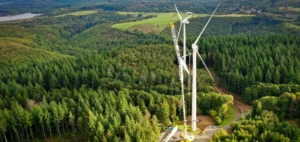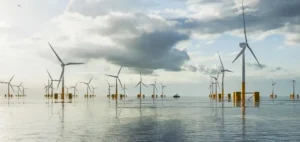The transaction includes selected assets and the team, while Denham Capital will retain certain assets. With the acquisition, Equinor strengthens its position as a major energy company in the Brazilian market.
Equinor becomes a leader in renewable energies in Brazil
“With Rio Energy, Equinor will take a leading position in Brazil’s fast-growing renewable energy industry. It accelerates production and cash flow, provides us with a solid platform for growth, and adds attractive capacity and project portfolio,” says Pål Eitrheim, Equinor’s Executive Vice President for Renewables.
The agreement is in line with Equinor’s strategy of developing its onshore renewable energy activities in selected markets through the acquisition of local companies with high-quality teams and project pipelines. In recent years, Equinor has invested in several renewable energy companies, such as Wento in Poland, BeGreen in Denmark, Noriker Power in the UK and East Point Energy in the USA, with the aim of offering flexible energy in certain markets.
“Rio Energy’s presence on board will strengthen Equinor’s ability to further develop the portfolio and reinforce our position as a major energy company in Brazil. By establishing an attractive renewable energy position in the country, as well as a strong oil and gas portfolio, we are supporting Brazil’s ambitions towards a diversified energy mix,” says Veronica Coelho, head of Equinor in Brazil.
Equinor bets on Brazilian electricity market with acquisition of Rio Energy
Following the transaction and the exclusion of certain assets by Denham Capital, Equinor will hold a 100% interest in Rio Energy, retaining the current management team and a total of around 140 employees. The acquired portfolio includes the 0.2 GW Serra da Babilonia 1 onshore wind farm in the northeastern state of Bahia, a 0.6 GW pre-construction solar photovoltaic portfolio and a pipeline of around 1.2 GW of onshore wind and solar projects.
Rio Energy will be a wholly-owned subsidiary of Equinor, and the team and management will continue to develop its existing portfolio. The portfolio of projects acquired is expected to generate a real base return of 4% to 8% for renewable energy projects, including the acquisition price. The energy produced is to be managed on the Brazilian market by the energy trading company Danske Commodities (DC). DC recently set up a sales office in São Paulo to support Equinor’s business in the country.
“Brazil is the largest electricity market in South America, with expected growth in demand and rapid expansion of the deregulated market. By creating a power portfolio in Brazil, managed by DC, we can drive value in line with our market-driven power generation strategy,” says Olav Kolbeinstveit, Equinor’s Senior Vice President for Onshore Markets and Renewables. The transaction is subject to the relevant regulatory approvals.






















